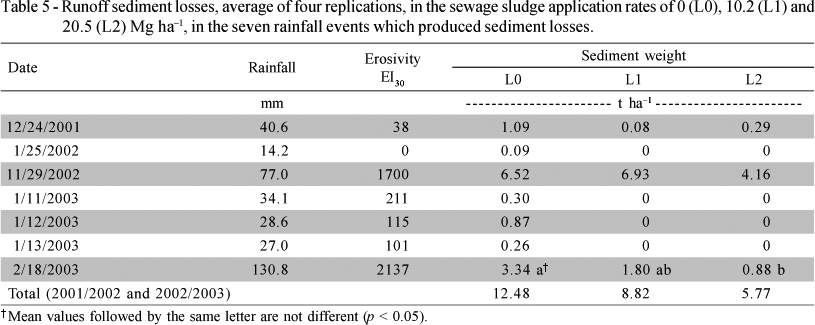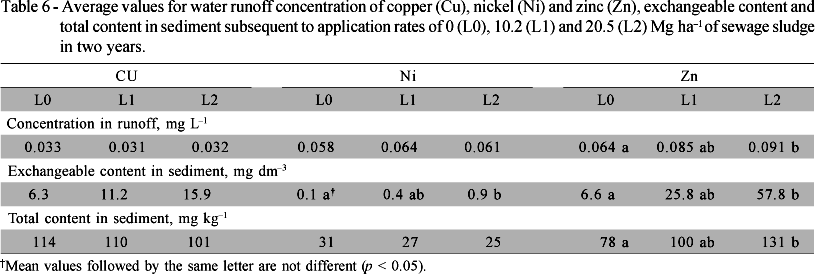The use of sewage sludge in agricultural soils as a macro and micronutrient source and as a soil conditioner has been one of the alternatives for its disposal. However, sewage sludge contains trace metals, which are potential sources of pollution. The goal of this study was to evaluate the effect of sewage sludge application on surface water contamination through runoff when it was applied in a soil cultivated with corn. The effect of sludge application on the concentration and load of copper, nickel and zinc and the volume of runoff water and sediment were evaluated. The experiment was set up in plots used to study erosion losses in Campinas, Sao Paulo State, Brazil. The soil is a clayey Rhodic Hapludox. Three treatments were studied: no sewage sludge, sewage sludge to supply the N required by the crop and twice that amount, with four replications. The water and sediment lost by runoff were measured after each rainfall, and sampled for chemical analysis. The volumes of water and sediment lost by runoff decreased after sewage sludge application. The waste application increased trace metal concentration in the runoff water and sediment, especially zinc, which was present in high concentration in the sewage sludge used. Nevertheless, the load of trace metals transported from the plot was mostly dependent on the total runoff volume. Most of the Cu, Zn and Ni losses were via sediment, and occurred in a few highly erosive rainfall events in the period studied.
Cu; Ni; Zn; erosion; sediment











